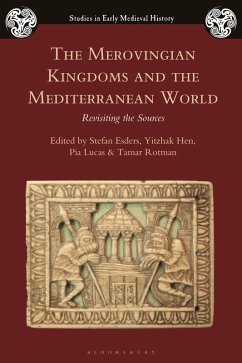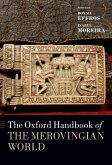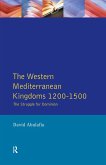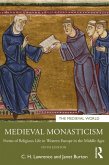This book explores the Merovingian kingdoms in Gaul within a broader Mediterranean context. Their politics and culture have mostly been interpreted in the past through a narrow local perspective, but as the papers in this volume clearly demonstrate, the Merovingian kingdoms had complicated and multi-layered political, religious, and socio-cultural relations with their Mediterranean counterparts, from Visigothic Spain in the West to the Byzantine Empire in the East, and from Anglo-Saxon England in the North to North-Africa in the South.
The papers collected here provide new insights into the history of the Merovingian kingdoms by examining various relevant issues, ranging from identity formation to the shape and rules of diplomatic relations, cultural transformation, as well as voiced attitudes towards the "other". Each of the papers begins with a short excerpt from a primary source, which serves as a stimulus for the discussion of broader issues. The various sources' point of view and their contextualization stand at the heart of the analysis, thus ensuring that discussions are accessible to students and non-specialists, without jeopardizing the high academic standard of the debate.
The papers collected here provide new insights into the history of the Merovingian kingdoms by examining various relevant issues, ranging from identity formation to the shape and rules of diplomatic relations, cultural transformation, as well as voiced attitudes towards the "other". Each of the papers begins with a short excerpt from a primary source, which serves as a stimulus for the discussion of broader issues. The various sources' point of view and their contextualization stand at the heart of the analysis, thus ensuring that discussions are accessible to students and non-specialists, without jeopardizing the high academic standard of the debate.









